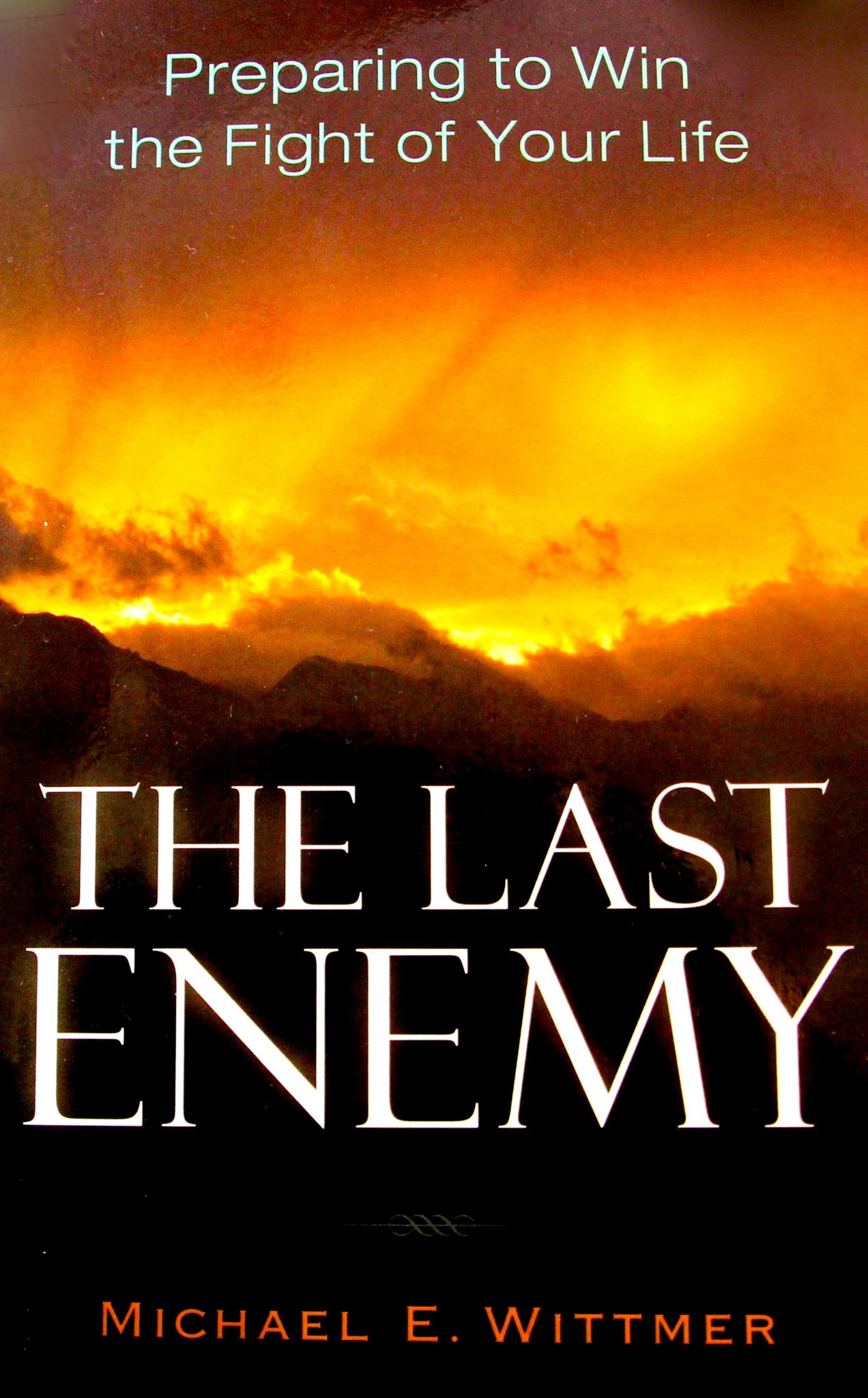Who wants to read a book about death?
You can almost imagine what it will be like. Page after page of depressingly realistic narrative, or, even worse, syrupy reassurances that death is perfectly normal. The Last Enemy, however, is neither. Indeed, Michael Wittmer, associate professor of systematic theology at Grand Rapids Theological Seminary, has written a very different kind of book.
It is possible for people to take death too seriously. The mere thought can paralyze us, rendering us unable to contemplate it and driving us to substitute something—anything—else. But the premise behind The Last Enemy is that only when we take seriously the shock, fear, anger, sorrow, regret, and every other response that death should prompt in us will we be positioned to hear the gospel’s verdict. In other words, unless we take the wrongness of death seriously, we can’t see the wonder and glory of the good news in the face of death.
Don’t think this makes for a difficult, argumentative book—or a boring one, for that matter. It was a pleasure to read. Sentences crackle with energy. They are short and punchy, even conversational. There is scarcely any cliché to be found. Wittmer’s examples are vivid and helpful, effectively illustrating his points.
The chapters are short, too, at only five or six pages apiece. That means Wittmer can address 23 different topics—10 ways death is terrible, and 13 ways Christ’s victory transforms the way we approach death. Although you could read The Last Enemy quickly, it is a book that deserves to be digested. Each chapter contains something insightful. I’d also strongly recommend using the discussion questions at the end of each chapter; otherwise, you may not draw the intended courage from Jesus’ promises.
One of Wittmer’s aims is to build our imaginations. For example, he turns to C. S. Lewis’s powerful description of Deep Magic at the heart of the universe to describe the power of a sinless man’s death to bring life. That’s not to say the book’s theology is trivial. His chapters on heaven and on the new creation, for example, are especially clear and helpful. And while there isn’t a lot of Bible exposition in The Last Enemy, Scripture is handled responsibly. The verse references sprinkled through the book are appropriate, not proof-texts carelessly wielded to defend an underlying theological position.

The Last Enemy: Preparing to Win the Fight of Your Life
Michael Wittmer
Researchers continue to spend time and money looking for ways to prolong life. However, the reality of the matter remains the same―we are all going to die at some point in time. Written with creativity and honesty, The Last Enemy speaks to Christians facing death or troubled by its inevitability. It brings clarity and hope to the subject of death and dying by exploring our emotions and reactions, the pain imposed by the enemy, and Jesus’ triumph over sin and death. The Last Enemy encourages readers to focus on what matters most and prepare for ultimate victory.
One thing that may grate on readers, however, is Wittmer’s description of Christians who do not seem to struggle with the inevitability and power of death. Perhaps, he suggests, “their sense of triumph may have come too easily” (14). Or later, he corrects someone who says that death is good for the Christian because they will be with Christ. No, he says, “couldn’t we acknowledge that something horrible had happened?” (71) For those who have found comfort in the promises of God, this response might seem needlessly provocative. But don’t worry—Wittmer eventually gets to those same promises, and his preceding focus on each of the dark features of death only makes the victory brighter.
Especially Helpful for Pastors
So who is the book written for? Most obviously, ordinary Christians. Everyone is bereaved, and everyone dies; it is important to be prepared for both. The publishers indicate that this is a book for “Christians facing death or troubled by its inevitability.” But that is to sell the book short. You might equally call this a book on life, because at each stage Wittmer applies the truths of death and Christ’s promises to everyday life. These have implications for our idols, for our hopes and dreams, and for how we treat our families and those we love. Any Christian, then, would profit from reading this book.
I would also recommend The Last Enemy particularly for pastors. Although the language and engagement are not scholarly or technical, there is a good deal to be learned regarding how to preach to anger, sorrow, fear, and so many of the other emotions that are part of the Christian life.
What about non-Christians? Because it eschews cliché, The Last Enemy would be understood by many without a church background. There is one caveat, however. Much of what is said assumes a relationship with Jesus. Wittmer doesn’t spell it out in every sentence, so you might think it would give false hope to someone who isn’t following Jesus. In order to prevent that dilemma, the third chapter contains a very short gospel presentation on the theme of hell and judgement. Wittmer pulls no punches; he is accurate and helpful. He wants there to be no doubt in his readers’ minds that the promises of life forever belong only to Jesus’ followers. I would happily give this book to a non-Christian who is interested in what the Bible has to say about death, but there may be other books to which you would point him first.
The Last Enemy is extraordinarily well-written, and would be a pleasure to read even apart from the fact that it so clearly helps us see the magnitude of Christ’s victory on the cross. I found my heart encouraged and led to greater love for the Lord Jesus, and I trust the same will be true for you.































